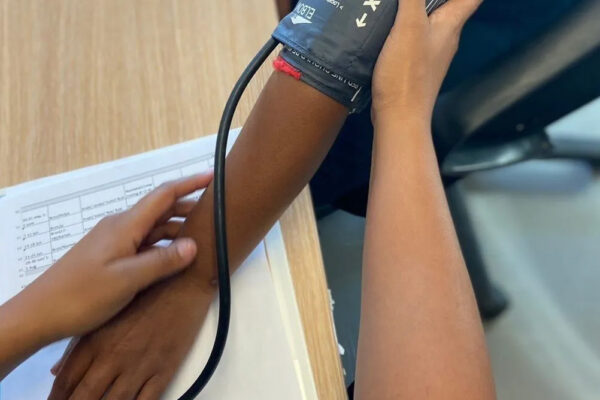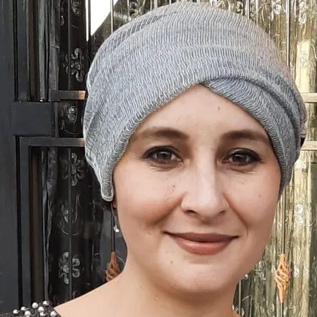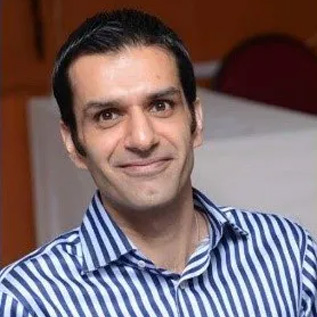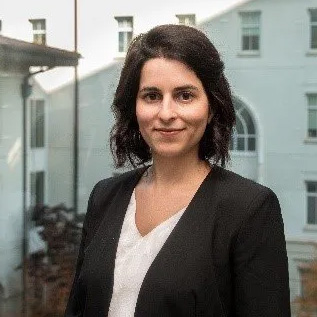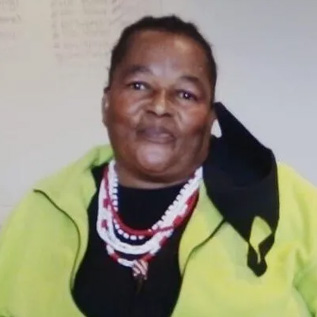The Integrating HIV and hEART health in South Africa (iHEART-SA) project is a collaboration between the University of the Witwatersrand, University Medical Centre Utrecht, Emory University and Harvard University. iHEART-SA is a 5 year initiative funded by the National Institute for Health’s National Heart, Lung, and Blood Institute (NHLBI) and Fogarty International Center (FIC).
Under the leadership of Principal Investigators, Profs Francois Venter (Ezintsha (Wits)), and Mohammed Ali and Vincent Marconi (Emory University), we will implement and evaluate interventions for integrating hypertension (HTN) and diabetes (DM) care into HIV care.
To make sure that these interventions are relevant and easy to implement, they will be co-designed with the relevant local and international stakeholders. The resulting package of services will be implemented, in the Johannesburg inner city, and later, scaled-up to rural KwaZulu-Natal.
“This project is highly significant for South Africa. Comparatively, we have a successful HIV programme, however, there are shortfalls in healthcare for cardiovascular disease (CVD). People with HIV bear at least twice the risk of CVD compared to HIV-negative adults. Through iHEART-SA, we hope to not only strengthen clinical care and data capacity, but also, research and training capacity, through the provision of implementation science and epidemiology short courses and multiple doctoral fellowship opportunities. Self-management of hypertension and diabetes will also feature – which is pivotal to adherence, particularly in a time of pandemic, where access to, and provision of, care is compromised.“
Dr Samanta Lalla-Edward (Co-Investigator (South Africa): Ezintsha)
BACKGROUND
Reports from the World Health Organisation have noted that, in sub-Saharan Africa, the burden of disease is shifting from communicable diseases to non-communicable diseases (NCDs), such as HTN and DM. South Africa is home to the world’s largest population of people with HIV (PWH). It has had notable success in rolling out antiretroviral therapy (ART), which enables HIV positive people to stay healthy and have a normal lifespan. As a result, as this population ages, new public health challenges are emerging. PWH are at higher risk for developing HTN and DM. However, there are significant service provision gaps in the standard protocols for integrated care of those with HIV.
Using evidence-based interventions, such as, care coordinators and decision-support tools, we aim to help address some of these gaps. Through a combination of local and international expertise, we will adapt the package of services so that they address key barriers and are feasible to implement and, eventually, bring to full scale.
INTERVENTION DEVELOPMENT
iHEART-SA will help to inform best practices for effective integration of HTN and DM detection, monitoring, and treatment, among PWH who are in established ART programmes. Using a Community Participatory Health Research approach, the study team has collected formative data from:
- Patients
- Providers and staff at selected pilot clinics, and other local primary healthcare clinics in inner-city Johannesburg.
- Clinic Leadership
- Community Stakeholders such as, HIV activists, public health system clinicians and administrators, as well as academics. These stakeholders provide support to the community advisory board, which meaningfully engages stakeholders in the development and implementation of the intervention package.
CAPACITY BUILDING
Last, but certainly not least, in addition to informing an intervention package, iHEART-SA provides an opportunity to support local academics from under-represented groups who will help to shape the scientific and healthcare future of South Africa.
Our capacity-building plan for three doctoral (PhD) students will enable us to share academic expertise and offer relevant “soft” skills such as communication, leadership, and organisational culture. This will facilitate academic scholars developing into leaders, equipped with skills to translate research into policy and programs, and pay it forward by mentoring future generations.
What this means for students:
- Mentorship from academic leaders (our investigators)
- Enrolment in online certificate program in Implementation science methods
- Short-courses and modules
- Co-funding for research activities (Utrecht & Emory)
- Co-funding from the National Research Foundation of South Africa that supports PhD’s country-wide
- * The NIH-funded Vanderbilt Emory Cornell Duke program which supports US fellows to work in LMICs
* iHEART-SA sites will become platforms to host US fellows and promote cross-pollination of ideas
iHEART-SA in action
Many of these photos are from clinics in the Johannesburg, Region F. The iHEART-SA team has established relationships with the clinics in the region through the formative phase of the project. Additionally, Ezintsha team members have participated in some community engagement activities – partnering with clinics to provide hypertension and diabetes screenings.
NEWS AND ANNOUNCEMENTS
Congrats to our team members!
World Hypertension Day
OUR TEAM
We are privileged to have a first-class team of experienced healthcare experts, researchers, and community advisors on board.
Mohammed K. Ali
Claudia E. Ordóñez
Daynia Ballot
Shabir Moosa
Henry Sunpath
Christina Kobe Choba
Mosa Moshabela
Alinda Vos
Yogan Pillay
Petra Zama (Mthembu)
HLB-SIMPLe Alliance
The Heart, Lung, and Blood co-morbidities Implementation Models in People Living with HIV Alliance (HLB-SIMPLe Alliance) is a research project proposing late stage implementation research strategies to, optimally and sustainably, deliver evidence-based prevention and treatment interventions for heart, lung, blood, and sleep (HLBS) comorbid diseases and disorders in PWH in low- and middle-income countries. As a group, the six awarded Research Projects, along with a Research Coordinating Center (RCC), the NHLBI of the National Institutes of Health (NIH), and the FIC constitute the collaborative HLB-SIMPLe Alliance.
The RCC employs a strategy that connects consortium members to capacity-building initiatives, data analyses, and data harmonization. There are several subcommittees, comprised of consortium members, working to achieve the strategy. Some of the iHEART-SA team occupy leadership on these subcommittees.
Subcommittees
Capacity Building
Community Engagement
D&I
Publications
Risk Management
iHEART-SA Member
Dr Samanta Lalla-Edward
Prof Claudia Ordóñez
Prof Karla Galaviz
Prof Francois Venter
Dr Nomathemba Chandiwana
Leadership Role
Vice Chair
Vice Chair
Vice Chair
Vice Chair
Co-Chair
OUR PARTNERS
iHEART-SA is supported by the National Heart, Lung, and Blood Institute of the National Institutes of Health under Award Number UG3HL156388. The content is solely the responsibility of the authors and does not necessarily represent the official views of the National Institutes of Health
Interested in what
we do?
Please feel free to fill out the form below, and ask any questions you may have regarding our work.



